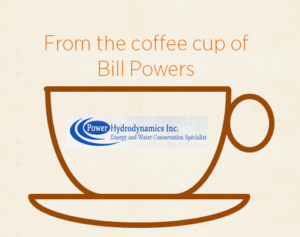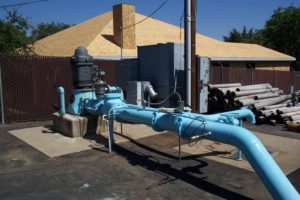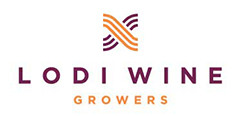 Not only are irrigation pump inefficiencies just plain bad for the environment, they cost the grower money! No bueno! Each percent of pressure wasted is equal to the additional costs paid in energy. If you waste 30%, you pay an extra 30%.
Not only are irrigation pump inefficiencies just plain bad for the environment, they cost the grower money! No bueno! Each percent of pressure wasted is equal to the additional costs paid in energy. If you waste 30%, you pay an extra 30%.
Irrigation Efficiency evaluations can locate problems with your system well before you would find them out the hard way. These evaluations may also reveal some practices that could save money, increase yields, and create more uniformity in your farming operation.
An Irrigation Efficiency Evaluation begins with the pumping plant and the filter station (if applicable). Distribution uniformity, irrigation efficiency, and pumping plant efficiency are all calculated. The results from an evaluation can help the grower better understand water requirements for the vineyard, data necessary for improved irrigation scheduling, and can provide useful tips for energy and cost savings moving forward.
A perfect distribution uniformity at 100% means there is a totally uniform distribution of the irrigation water applied. In my experience, most new irrigation systems range between 70-90% DU. System maintenance is key to having good distribution uniformity. For drip and micro-irrigation systems, the most important factor in system maintenance is keeping the system clean – which means flushing it often. You should also choose a few spots and measure the pressure and flow at least twice per year – and bonus points if you start taking these measurements when the system is new!
To prepare for an irrigation efficiency evaluation:
• Gather your annual pump usage history from your utility company.
• Take note of areas in your farming operation which are challenging to irrigate.
• Schedule the evaluation to coincide with an average irrigation.
• Consider installing an access for measuring pump water levels if you don’t have one as it will make the pump test more complete.
 Pump Efficiency Test.
Pump Efficiency Test.
A pump test can locate problems with your pumping plant before they cause major issues or cost more money than they should. Often, we’ve found that vertical shaft turbine pumps are out of adjustment and don’t need major repairs. This adjustment can usually be fixed on the spot, with savings beginning immediately.
Pump efficiency testing is done by taking the three measurements below:
1. Gallons per minute
2. Total dynamic head (pumping water level and operating pressure)
3. Input horsepower
Then, a series of calculations give the grower the overall plant efficiency, the bowl efficiency, the well yield, and the cost to pump a set amount of water.
Case Study: Under Tree Sprinkler with Canal Vertical Turbine Boosters
Two almond orchards were using very dirty irrigation water and both systems were losing pressure. Both growers had the pumps repaired ($5,000) but this did not fix the pressure problem. Grower #1 installed a larger pump to provide more pressure, at a cost of $16,000. Grower #2 got an irrigation efficiency evaluation, where it was found that the main problem was worn nozzles. Larger nozzle openings caused lower pressures and water application rates that exceeded the soil’s intake capabilities. The moral of the story: check the system first and the pump last.
Learn more and speak with Bill in person at the Lodi Winegrape Commission’s Irrigation Efficiency Field Day tomorrow morning, June 27th!
Bill Powers of Power Hydrodynamics is a Certified Pump Specialist, a Certified Energy Manager, and a Certified Agricultural Irrigation Specialist with over 25 years of experience in energy and water conservation. Bill has tested approximately 36,000 pumps and 2,500 irrigation systems – and counting!
Have something interesting to say? Consider writing a guest blog article!
To subscribe to the Coffee Shop Blog, send an email to stephanie@lodiwine.com with the subject “blog subscribe.”
To join the Lodi Growers email list, send an email to stephanie@lodiwine.com with the subject “grower email subscribe” or click on “join our email list” to the right.
To receive Lodi Grower news and event promotions by mail, send your contact information to stephanie@lodiwine.com or call 209.367.4727.
For more information on the wines of Lodi, visit the Lodi Winegrape Commission’s consumer website, lodiwine.com.

